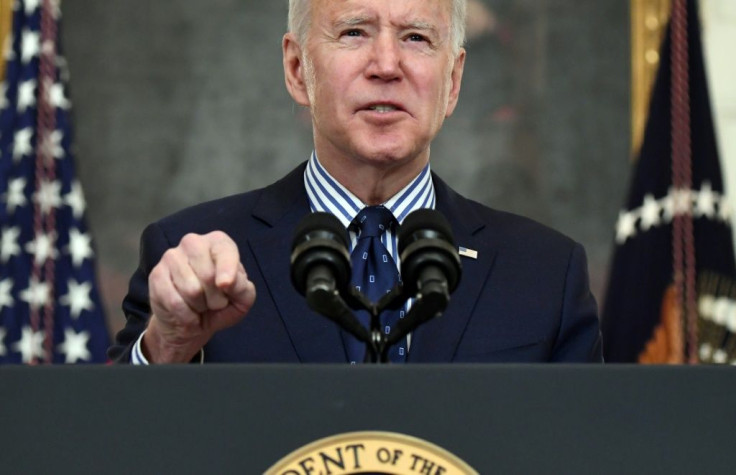Stimulus Check Update: House Passes Bill With Zero Republican Votes
The House of Representatives has passed the massive economic stimulus bill, sending the nearly $2 trillion package to the Oval Office for President Joe Biden's signature. The stimulus only made it past the Senate with concessions to moderate Democrats, but House progressives signaled a willingness to accept the changes.
Biden could sign it into law as soon as today, according to CSPAN.
The stimulus passed 220 to 211, with no Republican support and one Democrat — Jared Golden of Maine — voting against. One Republican abstained.
The version originally passed by the House included provisions increasing the minimum wage to $15 an hour, along with more robust unemployment benefits. The social security increases were scaled back to appease center-leaning Democrats like Joe Manchin of West Virginia.
They now sit at $300 weekly, funded through September to avoid ending during the August recess.

The increase to the minimum wage was also stripped by the Senate parliamentarian, who ruled it could not be passed through budgetary reconciliation, the process Democrats are using to avoid a Republican filibuster.
Democratic leadership declined to overrule the parliamentarian, much to the chagrin of progressives like Sen. Bernie Sanders, I-Vt.
Moderate Democrats prevent them from removing the filibuster entirely, putting the passage threshold for normal bills at 60 votes.
"I think the parliamentarian was dead wrong," @BernieSanders says of the minimum wage ruling, decrying the "absurd process that we allow an unelected staffer" in the Senate to decide "whether 30 million Americans get a pay raise or not."
— Sahil Kapur (@sahilkapur) March 5, 2021
Manchin on Monday said he might be open to putting some restrictions on the filibuster, such as requiring senators to actually talk to delay a bill.
"If you want to make it a little bit more painful, make them stand there and talk, I’m willing to look at any way we can," he said on NBC’s "Meet The Press."
"But I am not willing to take away the involvement of the minority."
House progressives quickly signaled they were open to accepting the Senate’s changes. Rep. Pramila Jayapal, D-Wash., and chair of the Congressional Progressive Caucus, bemoaned that Democratic leaders had caved but said the bill remained largely intact.
“Despite the fact that we believe any weakening of the House provisions were bad policy and bad politics, the reality is that the final amendments were relatively minor concessions,” she said.
© Copyright IBTimes 2025. All rights reserved.



















